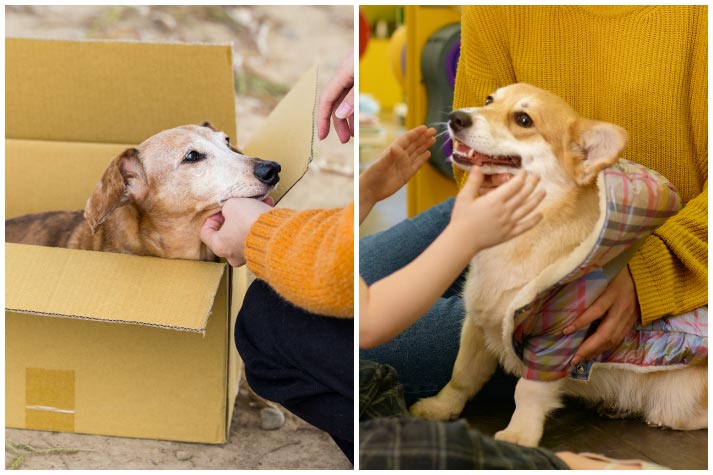
20 Feb
Pet Adoption vs. Buying: Why Rescuing Saves More Than Just a Life
Shelters are full of amazing dogs of all ages, sizes, and personalities. Many are family-friendly, house-trained, or even young puppies waiting for a fresh start. Mixed breeds often combine the best traits of different breeds and tend to have fewer genetic health issues than purebreds.
Every shelter dog has a story, often starting with hardship. Whether lost, abandoned, or surrendered, these dogs are not just waiting for a home but for someone to give them a new beginning.
Financial Benefits of Adoption
Adopting a pet is far more affordable than buying from a breeder. Adoption fees range from ?4000 to ?25000, which typically include spaying or neutering, initial vaccinations, microchipping, and basic health screenings. In contrast, buying from a breeder can cost anywhere from ?25,000 to over ?1,00,000, and that figure excludes the cost of medical treatments.
Where to Adopt a Pet?
Municipal shelters, private rescues, and breed-specific organizations are all great places to find a dog. You could also visit one of your local animal welfare organizations, particularly those recognized by the State Animal Welfare Board. Foster-based rescues also allow potential adopters to meet dogs in a relaxed home environment, which makes it easier to assess their personality.
The Adoption Process
Adopting a dog requires some paperwork and patience. Be ready to fill out an application form detailing your home and lifestyle, undergo a home visit (in some cases), and meet multiple dogs before finding the right match. Adoption fees typically cover vaccinations, spaying/neutering, and microchipping, and you may need to provide proof of address, ID, and references.
What About Buying a Dog?
For those looking for a specific breed for work, allergies, or personal preference, a responsible breeder is key. Researching breeders, checking for health certifications, and ensuring ethical breeding practices are essential. Some breeders have long waiting lists and require deposits. A good breeder will offer contracts, health guarantees, and post-sale support.
Red Flags in a Breeder
As a rule, you should only choose a registered and authorized breeder if you’re set on a specific pet or breed.
Avoid breeders who:
- Can’t show the puppy’s parents or living environment.
- Sell multiple litters at once or lack proper health clearances.
- Pressure buyers or rush transactions.
A reputable breeder, on the other hand, will conduct thorough health evaluations, maintain clean facilities, screen buyers carefully, and offer to take the dog back if needed.
Adoption vs. Buying: A Side-by-Side Comparison
- Cost: Adoption fees range from ?3,500 to ?21,000, covering medical expenses, while buying costs start at ?25,000 and can exceed ?1,00,000, with additional health expenses.
- Health: Adopted dogs receive basic medical care but may lack full health records. Breeder dogs have known lineage and genetic testing but may inherit breed-specific issues.
- Training & Socialization: Many adopted dogs are house-trained, while breeder puppies require extensive training but offer predictability in temperament.
- Predictability: Mixed breeds can be unpredictable in size and temperament, whereas purebreds provide certainty in appearance and likely behavior.
How to Choose Between Adopting and Buying?
The choice between adoption and buying is a tough one, with each having its own pros and cons. Adopting a dog saves a life and keeps costs low; shelter fees are far lower than breeder prices, plus the pup usually comes vaccinated and neutered as a part of that fees.
You also get that feel-good factor of giving a rescue a second chance, with a whole new release on life. The flip side is that you might not know their full history, and training could take some effort and patience. if they’ve been through trauma.
On the other hand, buying from a responsible breeder means you get a well-bred dog with a known lineage, predictable traits, and early socialization. The downside is that doing so is expensive, and you must be extra careful where you’re putting your money due to illegally operating breeders and puppy farms.
Lifestyle Considerations
Your home size, time commitment, experience level, and family setup should all factor into your decision. Puppies require training, while adult dogs may need less. First-time owners might find an older dog easier to manage.
You should also look into your chosen dog’s breed-specific traits. Exercise is an example; while pugs require 15 mins of daily exercise, a labrador needs 90-120 minutes of exercise daily. Depending on your routine and lifestyle, this could be a major factor to consider, as dogs who don’t get their energy needs met usually end up exhibiting nervous, anxious, or destructive behaviours.
Special Considerations
Allergies, breed preferences, housing restrictions, and activity levels all play a role in choosing the right dog. If allergies are a concern, hypoallergenic breeds may be the best option. If you’re set on a specific breed, buying may be your only choice, as shelters don’t have that luxury. Adopting can be incredibly rewarding, giving a dog a second chance; however, some people will have strong attachments to certain breeds based on past experiences or preferences.
Making the Final Decision
Visit both shelters and breeders. Spend time with different dogs and make an informed choice based on your lifestyle and commitment level. Whether you adopt or buy, every dog deserves a loving home. The most important thing isn’t where your dog comes from, but where they’re going; into a family that will love them for life.






AUTHOR’S BIO
Carry My Pet
Passionate pet enthusiasts and globetrotters, dedicated to easing furry friends' journeys worldwide. Penning tales of compassion at CarryMyPet, where every relocation is a tail-wagging adventure.